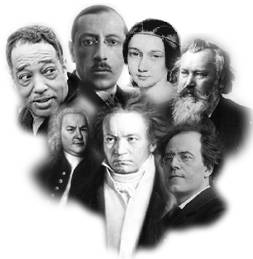by Amy M. O’Quinn
To continue with my series on introducing children to the fine arts, I am going to discuss music appreciation and composer study and give ideas for how easy it is to incorporate this type of learning into our everyday lives. First however, I’d like to recap while I feel this type of exposure is so important.
Why Study Fine Arts?
“Charlotte Mason, a 19th century British educator, believed that exposing children to great ideas and beauty in all areas inspired them to greatness as well. She theorized that by letting them become familiar with the best artists, composers, and writers, they would be less willing to settle for mediocrity in themselves. As Elizabeth Gutman said in her book, The Story of Art, part of The Bookshelf for Boys and Girls series: “The magic power of art can arouse all kinds of emotions in us, from simple joy to much deeper feelings. And artists are great people whose works can gladden our eyes, enrich our thoughts, and deepen our feelings.”
“I think these words can apply to ALL areas of the fine arts. And with today’s norm of following the crowd or being happy with the status quo, we should want our children to be inspired and motivated to strive for more—to reach for excellence instead of being content with the marginal.”



Why listen to classical music or study composers?
We’ve all heard about the ‘Mozart Effect’ in the last few years. There have been books and studies claiming that listening to the music of Mozart actually helps to develop the brain, improve short term memory, and increase IQ. Many parents have jumped on the bandwagon and are exposing their children, some even before birth, to Mozart.
There is great debate on whether or not there really is anything to this theory, but research does show that when a child listens to classical music the right hemisphere of the brain is activated, and when a child studies a musical instrument both the left and right hemispheres of the brain light up. Nevertheless, the interest generated by this phenomenon has catapulted classical music back into the spotlight, and that in itself has been a good thing.
In addition, classical music is simply beautiful and peaceful. It’s universal and no matter what language, music forges a common bond. Music also creates emotions and enriches lives with the fulfillment that comes from enjoyment. Many people believe that the soothing tones of classical music influences children’s behavior in a positive way and increases attention span and concentration. A working knowledge of classical music and the men who wrote it also makes for a well-rounded education and individual. But never underestimate the ability of a very young child to appreciate and recognize a piece of music or the work of a composer. When my son was about two years old, he would shout out, “Tchaikovsky!” whenever he heard Dance of the Sugar Plum Fairy!
The composers who made these musical contributions to the world are important in their own right and have their places in history as well. Many of them had extraordinary lives and are quite interesting to read about. Children are usually fascinated to learn things such as the fact that Mozart was a child prodigy who composed music by the age of five or that Beethoven continued to write music even after he lost his hearing. And although it’s easy to introduce our children to the composers as we expose them to various pieces of music, we can do so by casually mentioning the na


